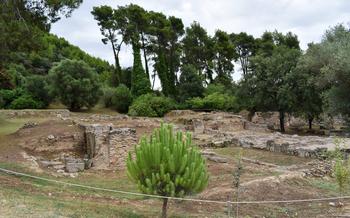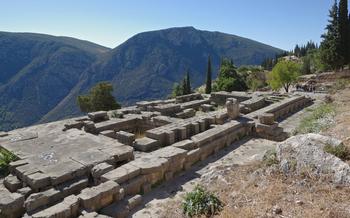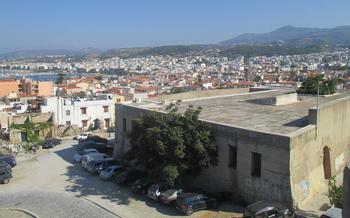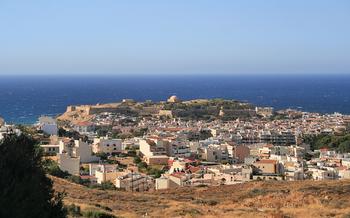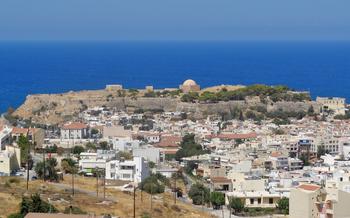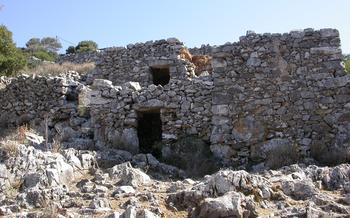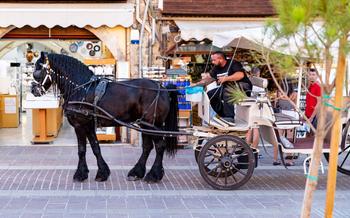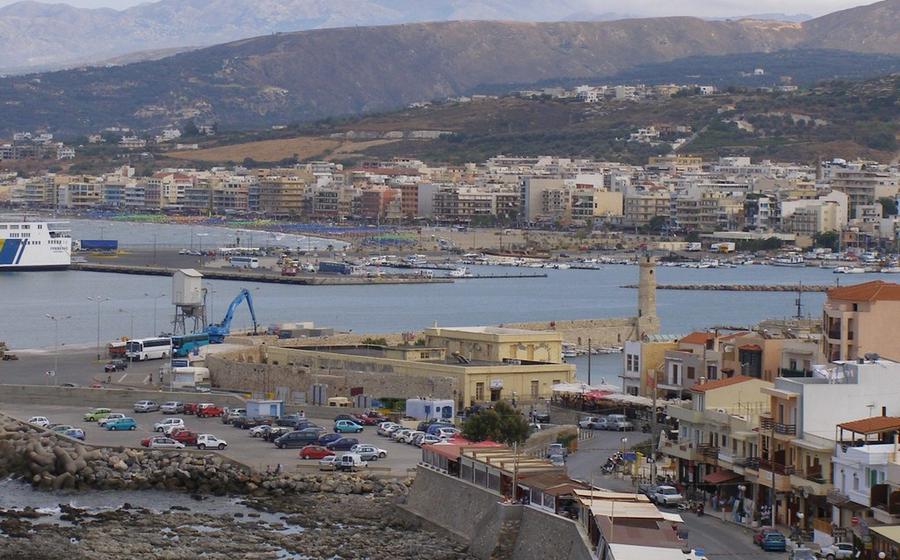
The Olive Oil Farm
- Historical Background
- Finding the Right Olive Oil Farm
- Booking Your Visit
- The Olive Grove
- Olive Harvesting Demonstration
- Olive Oil Production Process
- Olive Oil Tasting
- Health Benefits of Olive Oil
- Olive Oil and Greek Cuisine
- Shopping for Olive Oil
- Local Products
- Sustainability
- Cultural Experience
- Photo Opportunities
- Insider Tip: Join an Olive Festival or Event
Historical Background
Olive oil has a rich and storied history in Greece, dating back to the Minoan civilization, which flourished on Crete over 4,000 years ago. The ancient Greeks considered olive oil sacred and referred to it as "liquid gold." It was widely used in cooking, as a fuel source, and for various religious and medicinal purposes. Theophrastus, the famous Greek philosopher and naturalist, wrote extensively about the olive tree and its cultivation methods. Over the centuries, olive oil production became an integral part of Greek culture and economy, and Greece remains one of the largest producers of olive oil in the world.
Finding the Right Olive Oil Farm
When choosing an olive oil farm to visit in Rethymno, there are several factors to consider to ensure a rewarding experience.
Location: Choose a farm that is conveniently located and accessible, whether near your accommodation or along a scenic route. Consider the distance and travel time to avoid spending too much time on the road.
Reputation: Look for farms with a good reputation for producing high-quality olive oil and offering informative and engaging tours. Research online reviews, read recommendations from travel guides or local tourism offices, and ask for referrals from friends or fellow travelers.
Authenticity: Opt for farms that are family-run or have a long history of olive oil production. These farms often offer a more authentic and personal experience, as they are passionate about their craft and eager to share their knowledge and traditions.
Activities and Amenities: Consider the activities and amenities offered by the farm. Some farms provide guided tours of the olive groves and production facilities, while others offer olive oil tastings, cooking classes, or hands-on harvesting experiences. Choose a farm that aligns with your interests and preferences.
Budget: Olive oil farm tours and tastings can vary in price, depending on the duration, activities included, and the reputation of the farm. Set a budget that fits your travel plans and consider any additional costs for souvenirs or olive oil purchases.
Tips for Finding a Reputable and Authentic Farm:
-
Visit Local Markets: Engage with local vendors at farmers' markets or village markets. They can provide recommendations for reputable olive oil farms in the area and share insights into the local olive oil culture.
-
Ask for Recommendations: Seek advice from your hotel concierge, tour operators, or fellow travelers who have visited olive oil farms in Rethymno. Personal recommendations can lead you to hidden gems that may not be widely known.
-
Check Online Reviews: Read reviews and ratings of olive oil farms on travel websites, social media platforms, and review sites. Look for farms with consistently positive feedback, as this can indicate a high level of customer satisfaction.
Booking Your Visit
Booking a tour or tasting experience at an olive oil farm is typically easy and convenient.
Most farms offer guided tours that provide an in-depth look into the olive oil production process, from harvesting and pressing to bottling. These tours often include a tasting session, allowing visitors to sample different varieties of olive oil and learn about their unique flavors and aromas.
To book a visit, you can either contact the farm directly or through an online booking platform.
When making your reservation, be sure to specify the date and time of your visit, as well as the number of people in your group. Some farms may require advance booking, especially during the busy harvest season, so it's best to plan ahead to avoid disappointment.
Once you have booked your visit, you will receive confirmation from the farm with all the necessary details, including the meeting point and any additional information you may need.
It's important to note that some farms may charge a small fee for tours or tasting experiences. However, this fee is usually minimal and well worth the experience and knowledge you'll gain.
The Olive Grove
As you stroll through the rows of olive trees, you'll be struck by their graceful presence and the silvery shimmer of their leaves. The air is filled with the heady scent of freshly picked olives, and you'll be amazed by the sheer number of trees that blanket the landscape.
Take some time to appreciate the different varieties of olives grown on the farm. Each variety has its own unique flavor and aroma, and the farmers will be happy to explain the differences between them. You'll learn about the Koroneiki olive, known for its delicate flavor and high oil content, and the Arbequina olive, prized for its fruity notes and versatility. As you walk through the olive grove, you'll notice how well-cared for the trees are. The farmers take great pride in their work, and they use sustainable practices to ensure the health and longevity of their trees. They prune the trees regularly to promote new growth, and they use natural fertilizers to keep the soil healthy.
Olive Harvesting Demonstration
Witnessing the traditional olive harvest is an integral part of any visit to an olive oil farm. During this hands-on experience, you'll have the opportunity to learn about the different stages of the harvest and the importance of proper harvesting techniques.
Depending on the time of year, you may be able to participate in the harvest yourself, picking olives directly from the trees. Experienced farmers will guide you through the process, sharing their knowledge and expertise. They'll show you how to identify ripe olives, how to pick them without damaging the tree, and how to collect them in baskets or nets.
You'll learn about the different factors that influence the quality of the harvest, such as the weather conditions, the variety of olives, and the soil type. You'll also discover the importance of using the right tools and techniques to ensure that the olives are harvested at the optimal time and in the best condition.
The olive harvest is a vibrant and lively affair, and you'll have the chance to interact with local farmers and learn about their traditions and customs. It's a unique opportunity to gain a deeper understanding of the olive oil production process and the dedication that goes into creating this liquid gold.
Olive Oil Production Process
The olive oil production process is an intricate and delicate one, influenced by factors such as the olive variety, climate, soil conditions, and harvesting techniques. At the farm, you'll have the opportunity to witness this process firsthand, from harvesting to bottling.
Harvesting The olive harvest typically takes place between October and December, when the olives reach their optimal ripeness. Traditionally, olives were hand-picked, but modern farms often use mechanical harvesters to increase efficiency. During your visit, you may have the chance to witness the traditional harvesting methods, where workers carefully pluck the olives from the tree branches.
Extraction Once harvested, the olives are transported to the mill for extraction. The most common method of extraction is cold pressing, which involves crushing the olives into a paste and then pressing it to separate the oil from the solids. This method preserves the delicate flavors and aromas of the olive oil.
Centrifugation After the initial pressing, the olive paste undergoes centrifugation to remove any remaining oil. This process involves spinning the paste at high speed, causing the oil to separate from the solids. The resulting oil is then filtered to remove any impurities.
Blending Some producers blend different varieties of olives to create unique flavor profiles. Blending allows them to balance the bitterness, pungency, and fruitiness of the oil, creating a harmonious and complex taste.
Storage and Bottling The extracted oil is stored in stainless steel tanks or dark glass bottles to protect it from light and oxidation. This helps to preserve its quality and flavor. Before bottling, the oil may be filtered again to remove any remaining particles.
Olive Oil Tasting
During your visit to the olive oil farm, you'll have the opportunity to participate in a guided olive oil tasting session. This is a unique opportunity to learn about the different flavors and aromas of olive oil and to understand how they are influenced by factors such as the olive variety, the soil, and the climate.
The tasting session will be led by an experienced olive oil expert who will guide you through the process of tasting olive oil. You'll learn how to swirl, sniff, and sip the oil to identify its various characteristics. You'll also learn about the different grades of olive oil and how to choose the right oil for your cooking and eating needs.
Olive oil tasting is a fun and educational experience that will give you a deeper appreciation for this liquid gold. It's a great way to learn more about the different types of olive oil and to find the perfect oil for your taste and needs.
Health Benefits of Olive Oil
Olive oil is not just a culinary delight but also a nutritional powerhouse. Renowned for its health benefits, it has been a staple of the Mediterranean diet for centuries. Its primary component, oleic acid, is a monounsaturated fatty acid that helps reduce LDL (bad) cholesterol and raise HDL (good) cholesterol, thus lowering the risk of heart disease.
Olive oil is also rich in antioxidants, including polyphenols and tocopherols, which help combat free radicals and protect against cellular damage. It contains anti-inflammatory compounds that may reduce the risk of chronic diseases like arthritis and certain types of cancer.
Moreover, olive oil is a good source of vitamins E and K. Vitamin E is a fat-soluble antioxidant that supports healthy skin and vision, while Vitamin K is essential for blood clotting and bone health.
Incorporating olive oil into your daily diet can contribute to overall health and well-being. Whether used as a salad dressing, drizzled over grilled vegetables, or as a cooking oil, olive oil adds flavor and nutritional value to your meals.
Olive Oil and Greek Cuisine
Olive oil is not just a culinary staple in Greece; it's a cultural cornerstone. It's the heart of the Mediterranean diet and a key ingredient in beloved Greek dishes. From simple salads and grilled meats to complex stews and pastries, olive oil adds a distinct flavor and richness that is synonymous with Greek cuisine.
One of the most iconic dishes that showcases olive oil is the Greek salad. A vibrant medley of fresh tomatoes, cucumbers, onions, feta cheese, and Kalamata olives, dressed with a generous drizzle of olive oil, this salad is a testament to the simplicity and freshness of Greek cuisine. The olive oil not only adds flavor but also helps to emulsify the juices from the vegetables, creating a delicious and refreshing dressing.
Another classic Greek dish that relies heavily on olive oil is moussaka. This hearty casserole is made with layers of eggplant, potatoes, and ground meat, topped with a creamy béchamel sauce. The olive oil is used to fry the eggplant and potatoes, giving them a golden-brown crust and infusing them with flavor. It also adds moisture and richness to the béchamel sauce, creating a dish that is both comforting and satisfying.
Olive oil is also essential in Greek pastries, such as baklava and kataifi. These filo-based desserts are made with layers of crispy pastry filled with nuts and sweetened with honey or syrup. The olive oil is used to brush the filo dough before baking, giving it a golden-brown color and a delicate, flaky texture. It also helps to keep the pastries moist and flavorful.
In Greece, olive oil is more than just an ingredient; it's a way of life. It's a symbol of hospitality, generosity, and the deep connection between the Greek people and their land. When you visit an olive oil farm in Rethymno, be sure to sample some of the local dishes that showcase this liquid gold. Indulge in the flavors of Greece and experience the culinary wonders that olive oil has to offer.
Shopping for Olive Oil
Take advantage of your visit to stock up on some of the freshest and most delicious olive oil you'll ever taste. Look for farms that sell their own oil, as this guarantees its authenticity and quality. When choosing an olive oil, pay attention to the following factors:
-
Color: High-quality olive oil should have a vibrant green or golden color. Avoid oils that are too dark or cloudy.
-
Acidity: The acidity level of olive oil is an indicator of its quality. Look for oils with an acidity level of 0.8% or less.
-
Harvest Date: The fresher the oil, the better. Choose oils that were harvested within the last year.
-
Packaging: Olive oil should be stored in dark glass bottles to protect it from light and oxidation. Avoid oils that are packaged in clear bottles or plastic containers.
-
Certification: Look for olive oils that have been certified by a reputable organization, such as the International Olive Council or the Greek Olive Oil Producers Association. This ensures that the oil meets certain quality standards.
Local Products
In addition to olive oil, many farms offer a variety of other local products, giving you a chance to support the local economy and savor the flavors of the region. These products may include freshly picked olives, olive tapenade, olive-based cosmetics, jams, honey, and traditional Greek sweets.
Look for products that are made with local ingredients and produced by small-scale farmers. This way, you can be sure that you're getting authentic, high-quality products while also supporting the local community. Consider purchasing a variety of items to create a unique gift basket or to enjoy at home.
By choosing to buy local products, you're not only getting delicious and unique items but also contributing to the sustainability of the region. You're helping to preserve traditional farming practices, support local businesses, and promote the region's culinary heritage.
Sustainability
Modern olive oil farms are increasingly adopting sustainable practices to minimize their environmental impact and promote eco-friendly production. This commitment to sustainability often includes using renewable energy sources, such as solar or wind power, to run their operations and reducing water consumption through efficient irrigation systems.
Many farms also practice organic farming methods, avoiding the use of pesticides and synthetic fertilizers to protect the soil and promote biodiversity. They may also employ cover crops to prevent erosion and improve soil fertility.
These sustainable practices not only benefit the environment but also contribute to the overall quality of the olive oil. By protecting the health of the soil and trees, farmers can produce healthier olives that yield higher-quality oil.
In addition, sustainable practices can help preserve the traditional character of the region and support the local economy. By using traditional methods and preserving the natural landscape, farms can maintain the unique identity of their products and attract visitors interested in experiencing authentic olive oil production.
When visiting an olive oil farm, inquire about their sustainability practices. Supporting farms that prioritize sustainability helps promote environmental conservation, protect local ecosystems, and ensure the long-term viability of the olive oil industry.
Cultural Experience
Olive oil is deeply embedded in the cultural fabric of Greece. A visit to an olive oil farm offers a unique opportunity to immerse yourself in this rich heritage. Engage with passionate local producers who will share their knowledge and stories about olive oil production, its role in Greek cuisine, and its significance in their daily lives. Learn about traditional harvesting techniques, family recipes that have been passed down through generations, and the social and economic importance of olive oil in the community. Embrace the opportunity to participate in hands-on activities, such as picking olives or helping with the pressing process, to gain a deeper understanding of the craft and the dedication that goes into producing high-quality olive oil.
Photo Opportunities
The rolling hills of Crete, dotted with ancient olive trees, offer a feast for the eyes. A stroll through the olive groves provides ample opportunities to capture the beauty of these majestic trees and the surrounding landscape. Visitors can take in the panoramic views of the olive groves stretching to the horizon, the silvery-green leaves shimmering in the sunlight.
The farm itself is a picturesque sight, with traditional stone buildings, a rustic olive press, and an abundance of olive trees. Visitors can capture the essence of the farm by photographing the traditional tools and equipment used in olive oil production, such as the stone millstones and the heavy wooden presses. The vibrant colors of the ripe olives, from deep purple to golden green, provide a pop of color against the backdrop of the silvery-green leaves.
The olive harvest is a particularly photogenic time, as the groves come alive with activity. Farmers and their families can be seen carefully picking the olives by hand, using traditional techniques that have been passed down through generations. The vibrant colors of the ripe olives, the traditional costumes of the farmers, and the stunning backdrop of the olive groves make for unforgettable photographs.
Insider Tip: Join an Olive Festival or Event
To truly immerse yourself in the local olive oil culture, consider attending an olive festival or event. These events are a celebration of the olive harvest and showcase the region's rich olive oil traditions. Visitors can participate in olive picking, witness traditional olive pressing demonstrations, and savor delicious olive oil-based dishes. It's a fantastic opportunity to learn more about the history and significance of olive oil in Greece while enjoying the festive atmosphere and meeting local producers. Check with the olive oil farm or local tourism office for information on upcoming events.
